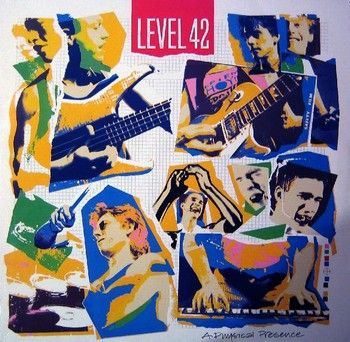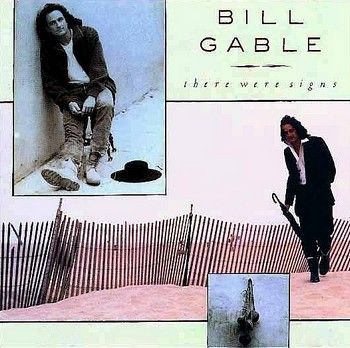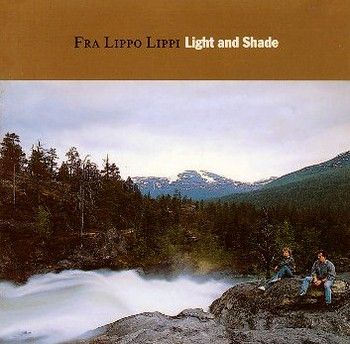
Level 42 - A Physical Presence - 1985 - Polydor
A Physical Presence, released in 1985, is the first live album from the British quartet Level 42. Recorded at various small European club venues, A Physical Presence is an impressive document of the band's dynamic live performances, and the live renditions of many of the songs improve on the original studio recordings. Much of the material on A Physical Presence comes from the band's first four studio albums, and several of Level 42's minor British hits ("Hot Water," "The Chinese Way") are included. Physical's highlights, however, are the blistering live takes on lesser-known non-single releases. For example, "Kansas City Milkman," which originally appeared in a somewhat lackluster version on the 1984 release True Colours, is given new life in concert; the version here is slightly faster and more energetic than the original. "Eyes Waterfalling" (originally from the 1982 album The Pursuit of Accidents) is given the same treatment and features Mark King's mind-boggling thumb-slapping bass-playing technique, which is all the more impressive considering his simultaneous role as lead vocalist. King is an amazing musician, but his fellow bandmates are no less capable; vocalist and keyboardist Mike Lindup, drummer Phil Gould, and guitarist Boon Gould give first-rate performances. Level 42's studio efforts (particularly on the early albums) tend to suffer from over-production, barely giving the musicians room to breathe. That certainly isn't the case here; on A Physical Presence, Level 42 truly shines, combining energy, talent, and songcraft to breathtaking effect. Although the sound quality isn't exactly stellar, A Physical Presence is still far better than Level 42's 1996 effort Live at Wembley. That album was recorded while the band was touring in support of its worst studio effort, Staring at the Sun, and contains entirely too much material from that anemic 1988 release. Live at Wembley also suffers from the absence of the Gould brothers and from the obviously less intimate arena setting; by the time Live at Wembley was recorded, Level 42 had become a major U.K. success. Mark King also became more of a show-off than a musician, and his half-hearted performance on Live at Wembley makes the album virtually unlistenable. A Physical Presence is a MUCH better indication of Level 42's capabilities in a live setting, capturing the band at the top of its form. © William Cooper © 2012 Rovi Corporation. All Rights Reserved http://www.allmusic.com/album/a-physical-presence-r11567/review [N.B - Review based on 1985 Polydor 10 track issue which excludes "Turn It On", "Mr. Pink", and "88"]
Recorded live in England using the Rolling Stones Mobile at The Coronet, Woolwich on March 30th 1985, The Hexagon, Reading on March 31st 1985, and Goldiggers, Chippenham on April 1st 1985, this is jazz pop/funk at it's best. Listen to the band's "World Machine" album [Tracks @ 308-320 Kbps: 2 x rar files: Pt 1 (Tracks 1-7) = 86.8 Mb, & Pt 2 (Tracks 8-13) = 82 Mb]
TRACKS / COMPOSERS
A1 Almost There - R. Gould, M. King, P. Gould
A2 Turn It On - R. Gould, M. King, P. Gould, W. Badarou
A3 Mr. Pink - M. King, W. Badarou
A4 Eyes Waterfalling - R. Gould, M. King, M. Lindup, P. Gould
B1 Kansas City Milkman - M. King, M. Lindup, P. Gould, W. Badarou
B2 Follow Me - R. Gould, M. King
B3 Foundation And Empire - M. King
C1 The Chant Has Begun - M. King, P. Gould
C2 The Chinese Way - M. King, P. Gould, W. Badarou
C3 The Sun Goes Down (Living It Up) - M. King, M. Lindup, P. Gould, W. Badarou
C4 Hot Water - M. King, M. Lindup, P. Gould, W. Badarou
D1 Love Games - M. King, P. Gould
D2 88 - M. King
MUSICIANS
Guitar – Boon
Bass, Vocals – Mark King
Keyboards, Vocals – Mike Lindup
Drums, Backing Vocals – Phil Gould
Saxophone – Krys Mach
BIO
At the beginning of their career, Level 42 was squarely a jazz-funk fusion band, contemporaries of fellow Brit funk groups like Atmosfear, Light of the World, Incognito, and Beggar & Co. By the end of the '80s, however, the band -- whose music was instantly recognizable from Mark King's thumb-slap bass technique and associate member Wally Badarou's synthesizer flourishes -- had crossed over to the point where they were often classified as sophisti-pop and dance-rock, equally likely to be placed in the context of Sade and the Style Council as any group that made polished, upbeat, danceable pop/rock. The band's commercial peak came with 1985's World Machine, but they continued to record and tour sporadically throughout the '90s and 2000s. Featuring Mark King (bass, vocals), Phil Gould (drums), Boon Gould (guitar), and Mike Lindup (keyboards), the band formed in 1979. Before they released their first single, "Love Meeting Love," the band was pushed to add vocals to their music in order to give it a more commercial sound; they complied, with King becoming the lead singer. Released in 1981, their self-titled debut album was a slick soul-R&B collection that charted in the U.K. Top 20, resulting in the release of The Early Tapes. Level 42 had several minor hit singles before 1984's "The Sun Goes Down (Living It Up)" hit the British Top Ten. Released in late 1985, World Machine broke the band worldwide; "Lessons in Love" hit number one in Britain and "Something About You" hit number seven in America. Their next two records, Running in the Family (1987) and Staring at the Sun (1988), were a big success in the U.K., yet only made some headway in the U.S. Both of the Gould brothers left the band in late 1987; they were replaced by guitarist Alan Murphy and drummer Gary Husband. Murphy died of AIDS-related diseases in 1989; he was replaced by the renowned fusion guitarist Alan Holdsworth for 1991's Guaranteed. The band followed Guaranteed in 1995 with Forever Now. Throughout the remainder of the ‘90s and the 2000s, the band’s lineup fluctuated, with King the lone constant and his brother, guitarist Nathan King, on-board since 2001. Level 42 released a studio album, Retroglide, in 2006. Four years later, the band celebrated its 30th anniversary with a special tour, as well as a box set, Living It Up, which included a disc of fresh acoustic versions recorded by Mark King and Lindup. © Stephen Thomas Erlewine © 2012 Rovi Corporation. All Rights Reserved http://www.allmusic.com/artist/level-42-p4747/biography






